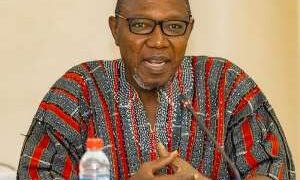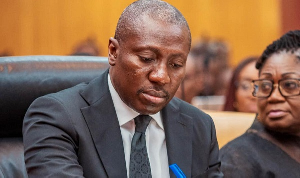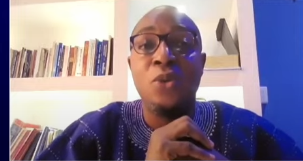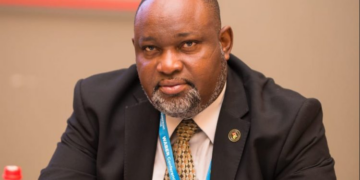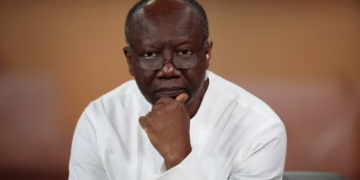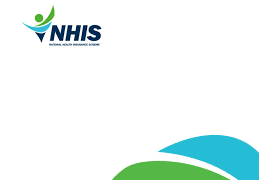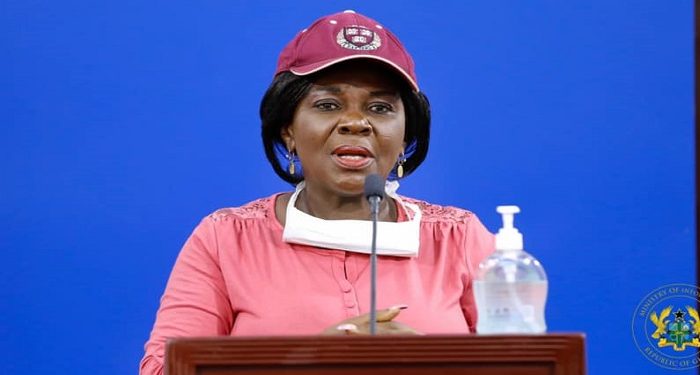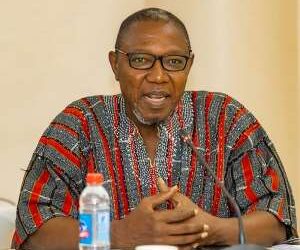Water Resources and Sanitation Minister Madam Cecilia Abena Dapaah has revealed that due to the negative impact of illegal mining, especially those mining on water bodies, many water treatment equipment has clogged and broken down, requiring huge amounts of money to fix them.
This repair investment she said has raised the cost of treating water for homes and businesses. A situation she has described as worrying and requires immediate intervention to stop it.
Speaking at the Ministry of Information Press Briefing she said “if I tell you that in Prestea where the Ankobra passes through has a turbidity of 24250 it means aquatic life is gone, plant and florin is also gone. All the useful activities that the river served the inhabitant is no more. And all this rural community has to buy drinking water. That is why despite the fact that we have 53.2 billion gallons of water endowed to this country, we cannot say we will never buy water from outside.”
Read this too: NIC and the Insurance College to train over 10000 individuals on insurance
Madam Cecelia Dapaa said apart from the government paying huge sums of money to ensure the distribution of clean, potable water for consumers, keeping a clean environment is an important facet to reduce air and water-borne diseases.
“We need to keep our water bodies clean. With regard to underground water, all that is slipping through the water can easily get to the aquifers so we cannot assume that they are not affected. In fact, Water Resources Commission is working with the water resource institute to make sure we get the results. it is necessary we check the contaminant and pollutant in our water bodies that is why his excellency the president is so serious with this fight against galamsey” she said.
She further stated that government has paid over GH¢500million to the Ghana Water Company Limited, out of the cost incurred on providing water to various households for free, during the peak of the Covid-19 pandemic.
Mad. Dapaah also stated that the ministry is collaborating with private bodies such as the zoomlion to provide the necessary infrastructure for solid waste management in all 16 regions.
She also charged individuals to perform their responsibilities to maintain a clean and healthy environment to help reduce air and water borne diseases.
She said “Ghana has made strides towards the attainment of sustainable development goals in water and sanitation. Currently, an afro barometer survey finding indicates about 33% of Ghanaians do have access to household toilets, an increment of 15% whiles the population with access to water has increased by 3% that is from 89% to 92%. Let us remain cautious and maintain healthy environmental sanitation, let us conserve treated water as well as protect and preserve our water bodies.”
Source: Benedicta Arthur and Abigail Asideu/ATLFMNEWS

